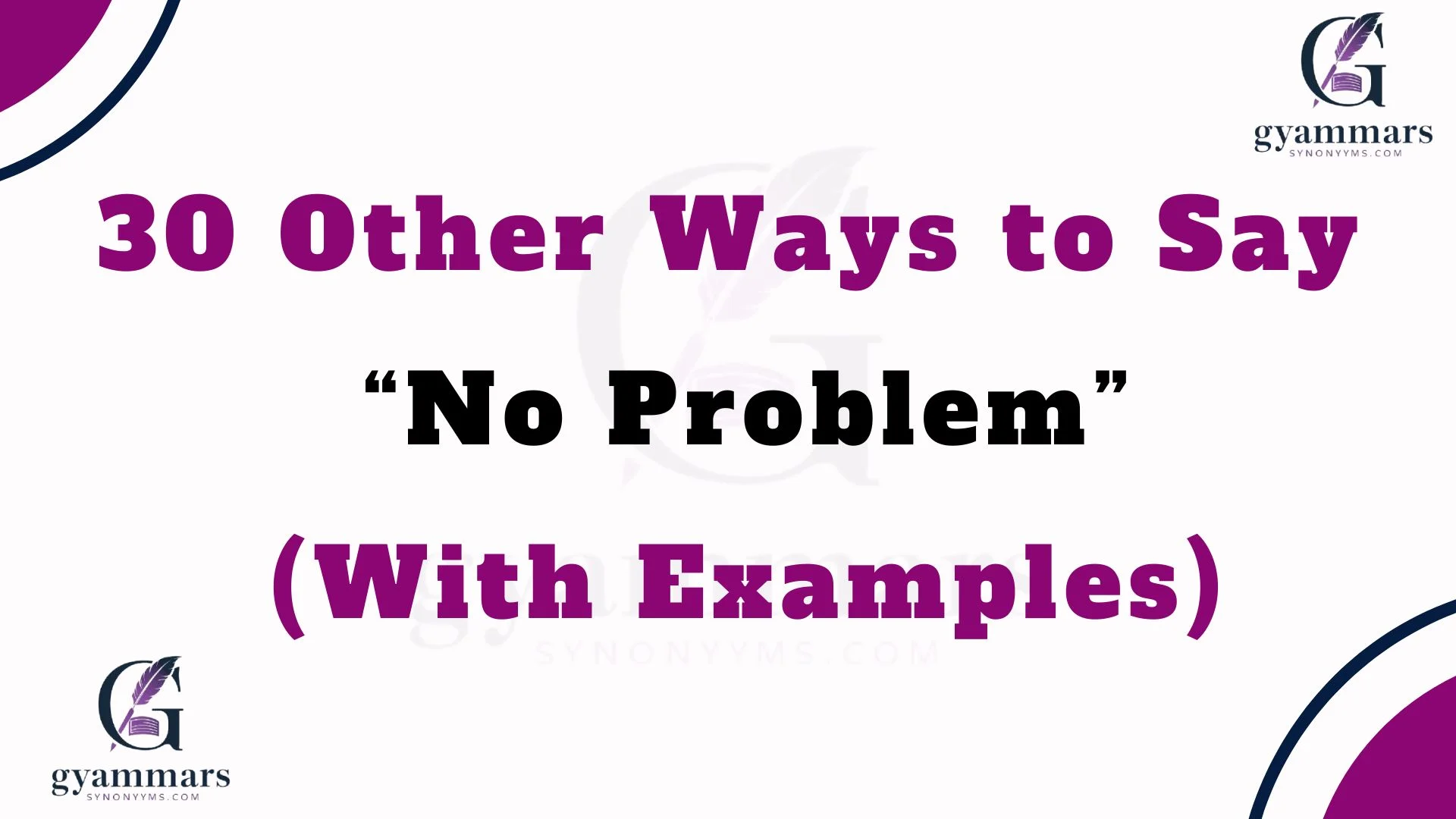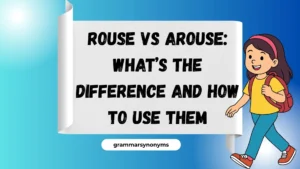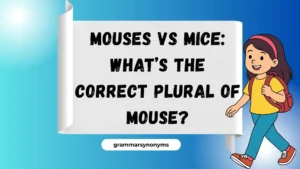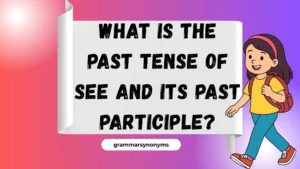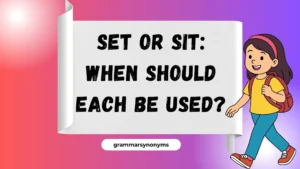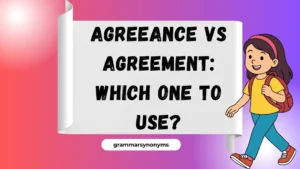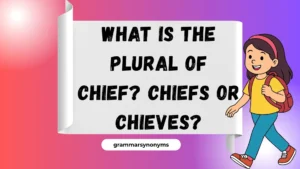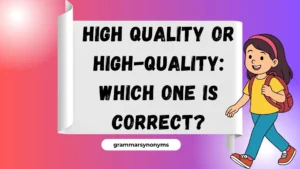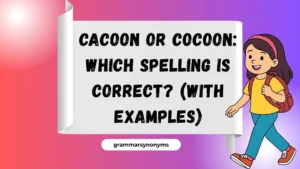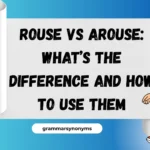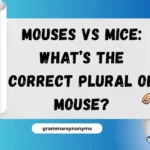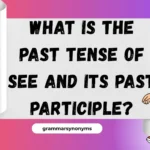Finding the right words to express care and kindness can make everyday interactions more personal and genuine. When someone thanks you, saying “No problem” is often a quick, casual way to show that helping them was easy. But sometimes, you might want a response that feels warmer, more professional, or emotionally thoughtful—depending on the situation.
That’s where these alternatives to “No problem” come in handy. Whether you’re chatting with a friend, responding to a coworker, or texting your boss, the phrases below help you express appreciation, humility, and empathy with just the right tone.
What Does “No Problem” Mean?
The phrase “No problem” is a casual way of saying “It was no trouble for me to help you.” It implies that you didn’t find the favor difficult or inconvenient. It’s friendly and often used in relaxed, informal settings like chatting with friends, family, or coworkers you know well.
However, in professional or formal situations, some people prefer more polished alternatives like “My pleasure” or “Glad I could help.”
Is It Professional/Polite to Say “No Problem”?
In many modern workplaces, “No problem” is perfectly acceptable. It feels approachable and friendly. But in formal business or customer service settings, some might find it slightly too casual—especially when dealing with clients or seniors.
If you’re unsure, it’s best to use alternatives like “You’re welcome”, “Happy to help”, or “It’s my pleasure.” These phrases convey respect while keeping your tone warm.
Pros and Cons of Saying “No Problem”
Pros:
- Sounds friendly and informal
- Puts others at ease
- Shows that helping was easy
Cons:
- Might sound too casual in professional settings
- Could imply that the person did cause a problem
- Lacks the warmth of phrases like “Glad I could help”
Synonyms For “No Problem”
- You’re Welcome
- My Pleasure
- Happy to Help
- Anytime
- No Worries
- Don’t Mention It
- Glad I Could Help
- It Was Nothing
- Sure Thing
- Of Course
- Absolutely
- You Got It
- It’s All Good
- Not a Big Deal
- You Bet
- That’s What Friends Are For
- No Biggie
- Anytime, Really
- It’s My Duty
- No Trouble at All
- Always Here for You
- It’s the Least I Could Do
- Don’t Worry About It
- You’re Too Kind
- With Pleasure
- No Hassle at All
- Glad to Be of Service
- You Made It Easy
- Consider It Done
- All Good, Anytime
1. You’re Welcome
Definition: A polite response to express that you’re happy to help.
Detailed Explanation: This is the classic and timeless way to respond when someone thanks you. It’s neutral, professional, and appropriate in all contexts.
Scenario Example:
- Person A: “Thanks for helping me with that report.”
- You: “You’re welcome! Happy to assist.”
Best Use: Professional settings or polite interactions. Tone: Respectful and warm. Additional Notes: Works universally; never sounds forced or awkward.
2. My Pleasure
Definition: A formal and gracious way to show genuine enjoyment in helping.
Detailed Explanation: Saying “My pleasure” communicates sincerity—it implies you truly enjoyed doing something for someone.
Scenario Example:
- Customer: “Thank you for your assistance.”
- Employee: “My pleasure.”
Best Use: Customer service, business, or polite social situations. Tone: Professional, warm, and polished. Additional Notes: Adds a personal touch of gratitude.
3. Happy to Help
Definition: Expresses eagerness and positivity in assisting others.
Detailed Explanation: This phrase radiates friendliness and approachability. It’s both professional and personable.
Scenario Example:
- Friend: “Thanks for covering my shift.”
- You: “Happy to help anytime!”
Best Use: Workplace and casual communication alike. Tone: Friendly and upbeat. Additional Notes: Great for team dynamics and supportive environments.
4. Anytime
Definition: A relaxed, easygoing way to show availability for future help.
Detailed Explanation: “Anytime” means you’re open to helping again—it conveys comfort and trust.
Scenario Example:
- Neighbor: “Thanks for lending your tools.”
- You: “Anytime!”
Best Use: Among friends, colleagues, or close acquaintances. Tone: Casual and reassuring. Additional Notes: Implies consistency and willingness.
5. No Worries
Definition: Suggests that the favor was simple and not a burden.
Detailed Explanation: This phrase has a relaxed, comforting vibe. It eases any concern that someone might have inconvenienced you.
Scenario Example:
- Colleague: “Sorry to bother you with this.”
- You: “No worries at all!”
Best Use: Informal settings. Tone: Calm and comforting. Additional Notes: Great for easing tension or stress.
6. Don’t Mention It
Definition: Minimizes the favor as something not worth thanking for.
Detailed Explanation: A humble way to say it was a small favor—no need for formal thanks.
Scenario Example:
- Friend: “You saved me today!”
- You: “Don’t mention it.”
Best Use: Between friends or casual peers. Tone: Modest and kind. Additional Notes: Old-fashioned charm; still works in personal conversations.
7. Glad I Could Help
Definition: Expresses satisfaction in being able to assist.
Detailed Explanation: Shows genuine happiness that your effort made a difference.
Scenario Example:
- Client: “Thanks for your advice.”
- You: “Glad I could help!”
Best Use: Professional or personal situations. Tone: Positive and modest. Additional Notes: Slightly formal but friendly.
8. It Was Nothing
Definition: Downplays your effort to make others feel comfortable.
Detailed Explanation: Used to make someone feel that helping them required no effort.
Scenario Example:
- Friend: “You went out of your way for me.”
- You: “It was nothing.”
Best Use: Personal interactions. Tone: Humble and caring. Additional Notes: Avoid overuse—it can sound dismissive if said too quickly.
9. Sure Thing
Definition: A cheerful, confident affirmation that helping was fine.
Detailed Explanation: Casual and enthusiastic, it’s a great way to confirm willingness.
Scenario Example:
- Coworker: “Thanks for reviewing this.”
- You: “Sure thing!”
Best Use: Informal work or peer settings. Tone: Upbeat and friendly. Additional Notes: Adds energy and positivity.
10. Of Course
Definition: Indicates that helping was expected or natural.
Detailed Explanation: Shows warmth and readiness, as if helping was instinctive.
Scenario Example:
- Parent: “Thanks for picking me up.”
- You: “Of course!”
Best Use: Personal or polite casual contexts. Tone: Genuine and affectionate. Additional Notes: Adds emotional sincerity.
11. Absolutely
Definition: Strong agreement or willingness to help.
Detailed Explanation: Adds emphasis and enthusiasm, making your response feel energetic.
Scenario Example:
- Boss: “Thanks for taking care of that task.”
- You: “Absolutely!”
Best Use: Workplace and formal conversations. Tone: Confident and affirmative. Additional Notes: Use sparingly to keep it natural.
12. You Got It
Definition: Confident, friendly way to acknowledge a request or thanks.
Detailed Explanation: This phrase gives a casual sense of reliability and assurance.
Scenario Example:
- Teammate: “Thanks for covering my shift.”
- You: “You got it!”
Best Use: Among peers or friends. Tone: Supportive and laid-back. Additional Notes: Very American in tone; avoid in formal emails.
Read This: 30 Other Ways to Say “You As Well” (With Examples)
13. It’s All Good
Definition: Indicates there’s no problem or issue to worry about.
Detailed Explanation: Comforting phrase used to calm someone down or ease guilt.
Scenario Example:
- Friend: “Sorry for the mix-up.”
- You: “It’s all good!”
Best Use: Casual or personal communication. Tone: Reassuring and relaxed. Additional Notes: Excellent for defusing minor tension.
14. Not a Big Deal
Definition: Downplays the importance of the help provided.
Detailed Explanation: Used to comfort someone who feels indebted or embarrassed.
Scenario Example:
- Colleague: “I owe you big time!”
- You: “Not a big deal!”
Best Use: Personal or workplace friendships. Tone: Humble and kind. Additional Notes: Good for maintaining equality and comfort.
15. You Bet
Definition: Confident and friendly confirmation or agreement.
Detailed Explanation: Shows you were happy to help and open to future requests.
Scenario Example:
- Friend: “Thanks for helping with the project.”
- You: “You bet!”
Best Use: Informal situations. Tone: Playful and upbeat. Additional Notes: Casual but warm.
16. That’s What Friends Are For
Definition: Highlights friendship and care in the favor.
Detailed Explanation: A sweet and emotional response that shows loyalty and connection.
Scenario Example:
- Friend: “I can’t thank you enough.”
- You: “That’s what friends are for.”
Best Use: Close personal relationships. Tone: Caring and affectionate. Additional Notes: Adds a personal touch of warmth.
17. No Biggie
Definition: Very casual phrase meaning “It’s not a big deal.”
Detailed Explanation: A modern, easygoing way to reassure someone.
Scenario Example:
- Coworker: “Thanks for covering for me.”
- You: “No biggie!”
Best Use: Informal chats or texts. Tone: Playful and chill. Additional Notes: Avoid in formal environments.
18. Anytime, Really
Definition: Reinforces genuine willingness to help again.
Detailed Explanation: Adds sincerity and openness to “Anytime.”
Scenario Example:
- Neighbor: “Thanks for watching my dog.”
- You: “Anytime, really.”
Best Use: Friendly relationships. Tone: Warm and honest. Additional Notes: Strengthens connection and trust.
19. It’s My Duty
Definition: Suggests that helping was part of your responsibility.
Detailed Explanation: Shows dedication and accountability.
Scenario Example:
- Supervisor: “Thanks for taking care of that issue.”
- You: “It’s my duty.”
Best Use: Professional environments. Tone: Responsible and polite. Additional Notes: Works well in service or leadership roles.
20. No Trouble at All
Definition: Expresses that helping was effortless.
Detailed Explanation: Classic phrase showing grace and humility.
Scenario Example:
- Customer: “Thanks for assisting.”
- You: “No trouble at all.”
Best Use: Formal or polite settings. Tone: Courteous and composed. Additional Notes: Adds an elegant tone.
21. Always Here for You
Definition: A heartfelt expression showing ongoing support and availability.
Detailed Explanation: When you say “Always here for you,” you’re going beyond a simple thank-you reply. It communicates emotional support and reliability—perfect for close relationships or meaningful interactions.
Scenario Example:
- Friend: “Thanks for listening to me last night.”
- You: “Always here for you.”
Best Use: Personal relationships and emotional conversations. Tone: Warm, compassionate, and supportive. Additional Notes: Ideal when you want to show genuine care beyond the moment.
22. It’s the Least I Could Do
Definition: A modest way to say helping was minimal compared to what someone deserves.
Detailed Explanation: This phrase reflects humility and gratitude, showing you value the other person and their appreciation.
Scenario Example:
- Coworker: “Thank you for putting in the extra hours.”
- You: “It’s the least I could do.”
Best Use: When you want to sound considerate and down-to-earth. Tone: Humble and sincere. Additional Notes: Perfect in both professional and heartfelt exchanges.
23. Don’t Worry About It
Definition: Reassures someone that there’s no need to feel bad or obligated.
Detailed Explanation: When someone apologizes or over-thanks you, saying “Don’t worry about it” helps them relax and feel comfortable.
Scenario Example:
- Friend: “I’m sorry I kept you waiting.”
- You: “Don’t worry about it—it’s fine.”
Best Use: Casual and friendly conversations. Tone: Easygoing and forgiving. Additional Notes: Avoid in formal contexts—it may sound dismissive if tone isn’t gentle.
24. You’re Too Kind
Definition: A gracious acknowledgment of someone’s thanks or compliment.
Detailed Explanation: This phrase expresses gratitude for appreciation, often used when someone praises your efforts.
Scenario Example:
- Colleague: “Thanks for going above and beyond.”
- You: “You’re too kind.”
Best Use: Professional or polite social interactions. Tone: Appreciative and refined. Additional Notes: Adds elegance and emotional intelligence to your reply.
25. With Pleasure
Definition: A formal, courteous way to express enjoyment in helping.
Detailed Explanation: “With pleasure” is similar to “My pleasure,” but slightly more formal. It communicates grace and delight in offering help.
Scenario Example:
- Client: “Thanks for resolving the issue quickly.”
- You: “With pleasure.”
Best Use: Business, service, and polite interactions. Tone: Elegant and professional. Additional Notes: Excellent for customer-facing communication.
26. No Hassle at All
Definition: Expresses that something required no extra effort or trouble.
Detailed Explanation: This reassuring phrase tells others they haven’t inconvenienced you. It balances friendliness with simplicity.
Scenario Example:
- Neighbor: “Thanks for helping move that box.”
- You: “No hassle at all!”
Best Use: Casual yet polite exchanges. Tone: Warm and lighthearted. Additional Notes: Great for maintaining comfort and rapport.
27. Glad to Be of Service
Definition: A professional, courteous phrase showing satisfaction in helping.
Detailed Explanation: Common in customer service, this phrase signals commitment and reliability. It conveys pride in serving others.
Scenario Example:
- Customer: “You’ve been very helpful.”
- You: “Glad to be of service.”
Best Use: Professional or service-related communication. Tone: Polite, formal, and professional. Additional Notes: Perfect for workplace or client-based correspondence.
28. You Made It Easy
Definition: A modest acknowledgment that credits the other person’s cooperation.
Detailed Explanation: This phrase shows gratitude and teamwork, making the other person feel appreciated.
Scenario Example:
- Teammate: “Thanks for getting that done so fast.”
- You: “You made it easy!”
Best Use: Collaborative work or friendships. Tone: Friendly and appreciative. Additional Notes: Strengthens team spirit and mutual respect.
29. Consider It Done
Definition: Expresses confidence and assurance that the task is or will be handled.
Detailed Explanation: This phrase conveys reliability and proactive energy—it’s ideal when you want to sound dependable.
Scenario Example:
- Manager: “Can you handle the report updates?”
- You: “Consider it done.”
Best Use: Professional and confident settings. Tone: Assertive, reassuring, and positive. Additional Notes: Perfect for leadership or efficient communication.
30. All Good, Anytime
Definition: A friendly, modern variation of “No problem” combining reassurance and openness.
Detailed Explanation: Blends comfort and enthusiasm, showing you’re always happy to help.
Scenario Example:
- Friend: “Thanks for covering for me today.”
- You: “All good, anytime!”
Best Use: Friendly, relaxed conversations. Tone: Chill, confident, and genuine. Additional Notes: Great for text or in-person chats with peers.
🏁 Conclusion
Words matter more than we realize. A simple “No problem” can work just fine—but choosing a more thoughtful alternative can turn a small interaction into a moment of connection. Whether you say “My pleasure”, “Glad to help”, or “Always here for you,” these phrases help you sound more authentic, kind, and emotionally intelligent.
Every phrase carries a slightly different flavor—so pick one that matches the tone, relationship, and moment. You’ll not only sound polite but also leave a lasting positive impression.
🙋♀️ FAQs
1. What is the best alternative to “No problem” in formal writing?
Try “With pleasure,” “Happy to assist,” or “Glad to be of service.” They sound courteous and professional.
2. What can I say instead of “No problem” in customer service?
Use “My pleasure” or “It’s no trouble at all.” They show respect and make customers feel valued.
3. What’s a casual but friendly alternative?
“No worries,” “All good,” or “Anytime!” sound upbeat and easygoing.
4. Which alternative sounds warm and personal?
Phrases like “Always here for you” or “That’s what friends are for” carry genuine emotional warmth.
5. Should I avoid “No problem” in formal emails?
Yes. Instead, use “You’re welcome” or “Glad I could help.” They’re polished and universally appropriate.

“Mia Rose at Grammar Synonyms is your ultimate guide to mastering language with style and precision. Whether you’re looking to enhance your vocabulary, perfect your grammar, or discover the ideal synonym, Mia Rose offers expert resources and creative solutions to help you express yourself flawlessly. With Grammar Synonyms, unlock a world of language possibilities and elevate every piece of writing you create.
